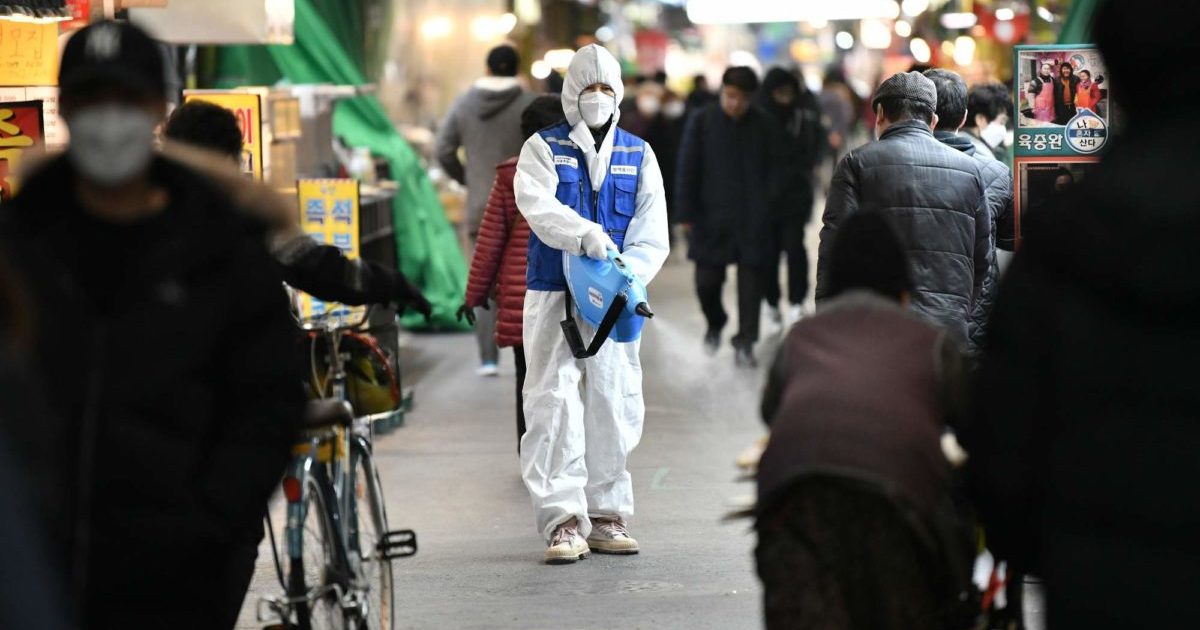- SARS-CoV-2 or the novel coronavirus has mutated into two strains.
- Aggressive quarantine measures are keeping the aggressive strain of the virus in check.
- People who recover from the mild strain of the virus will have immunity against SARS-CoV-2.
Governments around the world are scrambling to contain the rampaging coronavirus (SARS-CoV-2). In the United States, there are 159 confirmed cases and 11 deaths. Worldwide, the number of confirmed cases has soared above 95,000 as thousands contracted the infection in South Korea, Italy, Iran, and China. Total deaths has eclipsed the 3,000 mark.
It appears that government officials can do very little to stop the virus from killing more people. Fortunately, a coronavirus mutation is doing humanity a huge favor.
A new study published in the National Science Review reveals that a less aggressive strain of SARS-CoV-2 is increasing in frequency. This is a huge development as the mild strain of the coronavirus will lead to lesser deaths and give previously infected patients immunity.
The SARS-CoV-2 Has Mutated Into Two Different Strains
The study shows that there are two types of SARS-CoV-2: the L type and the S type. The L type is a new evolution from the ancient S type. It is also more lethal as it transmits faster and replicates faster in humans. Researchers note,
The L might be more aggressive than the S type due to the higher transmission and/or replication rate.
In addition, the L type was infecting more people in the early stages of the outbreak in China. In January 2020, the more aggressive strain of the virus had more frequency (70%) than the mild strain of the virus (30%). This would explain why close to 92% of coronavirus deaths are in China.
Since January, however, the frequency of the L type has decreased. Co-founder of MedX Protocol Dr. James Todaro says that the increasing prevalence of the S type makes sense. People who can travel and/or socialize are the ones who can easily infect others.
On top of that, it appears that aggressive human intervention is curbing the spread of the more aggressive strain of the virus.
Aggressive Quarantine Measures Helped Contain the Lethal Strain of the Coronavirus
While many people are blaming China for the spread of the virus, the reality is that the Asian country took a daring approach to contain the disease.
Science Magazine reports that Chinese hospitals that were overwhelmed by the number of COVID-19 patients weeks ago now have unoccupied beds. Furthermore, a report from a mission organized by the World Health Organization (WHO) and the Chinese government stated that China’s quarantine efforts have been effective. The report states,
China’s bold approach to contain the rapid spread of this new respiratory pathogen has changed the course of a rapidly escalating and deadly epidemic. This decline in COVID-19 cases across China is real.
The new study supports the claims in the WHO report. The researchers emphasized that “rapid and comprehensive prevention and control measures” of the Chinese government might have made it very difficult for the deadly strain to spread.
Meanwhile, the mild strain or the S type has more room to infect other people because of little to no human intervention. Although this sounds bad, Dr. James Todaro explains that this is actually great news. People who contract the virus and recover would have immunity against SARS-CoV-2.
All in all, it appears that aggressive quarantine measures will keep the L type in check. While more people get sick due to the S type, those who recover will be in a better position to combat the L type mutation. Under these circumstances, we can expect a dramatic decrease in coronavirus deaths over time.
This article was edited by Samburaj Das.
Last modified: March 7, 2020 6:37 AM UTC




